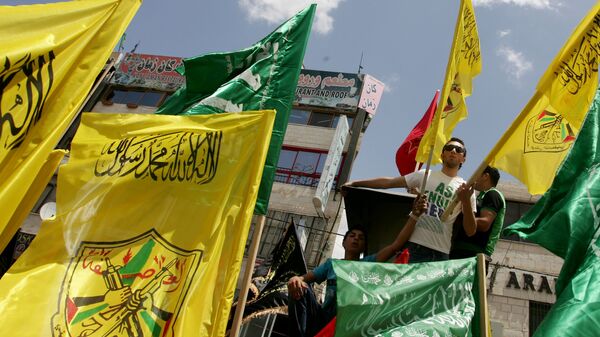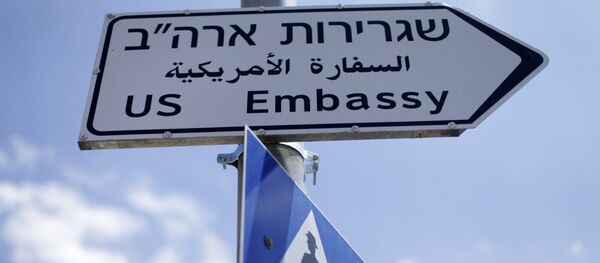Sputnik: How significant is the relocation of the embassy to Jerusalem in your view?
Ely Karmon: It's a very important psychological, political, and even sentimental feeling, because as you know the Jews always pray to Jerusalem – 'we hope to meet next year in Jerusalem'; Jerusalem has been the capital of Israel since the beginning, but we had the problem that countries all over the world did not recognize this fact.
This event is extremely important for the Israeli people, and not only for the political class.
Sputnik: Some experts have said that the relocation of the United States embassy could boost Israel's claim to the city and underscore its legitimacy. What are your thoughts on this? Do you agree with this assertion?
Ely Karmon: The declaration of President Trump on Jerusalem [being] the capital of Israel was not clarified from the beginning. Actually, after his tweet and declaration, the administration has since clarified that the United States recognizes West Jerusalem as the capital of Israel.
People also do not know that after Oslo agreements in the 90s, fifteen states had embassies in West Jerusalem. And [only] because of the violence, the Intifada and pressure from other countries, most of them retired their embassies from the city.
Already two [more] states will transfer their embassies to Jerusalem – the Czech Republic and Romania have in principle agreed to this. And although there is European opposition to the United States in this event, 33 countries have sent their ambassadors or charges d'affaires to [Monday's] important ceremony. So I think there is a movement of recognition of West Jerusalem as capital of Israel.
Sputnik: The move unsurprisingly drew the ire of Palestinians, who slammed it as a hostile decision by the US against Palestine. What are the chances that the decision could spark further violence?
Ely Karmon: It was clearly expected that the Palestinians would not accept the American move [in part] because of the error by the American administration in not clarifying from the beginning what this recognition means…
Clearly the Palestinians, whom for the last four years do not want to negotiate with Israel, are not always right in this policy. Moreover, the Hamas organization, which is a radical Islamist terrorist organization,* is making every effort to sabotage any attempt at normalization.
In my opinion, this issue will subside in the next days and weeks. Because most of the Palestinian people do not have an interest [in it], and because Hamas is isolated not only in the international arena, but also among Arab countries, which do not support Hamas's policy in the Gaza strip.
*Israel considers Hamas a terrorist group. Russia does not recognize the group as such.
Dr. Ely Karmon is a senior research scholar at the International Institute for Counter-Terrorism in Herzliya, Israel. Dr. Karmon's views and opinions are those of the speaker and do not necessarily reflect those of Sputnik.



